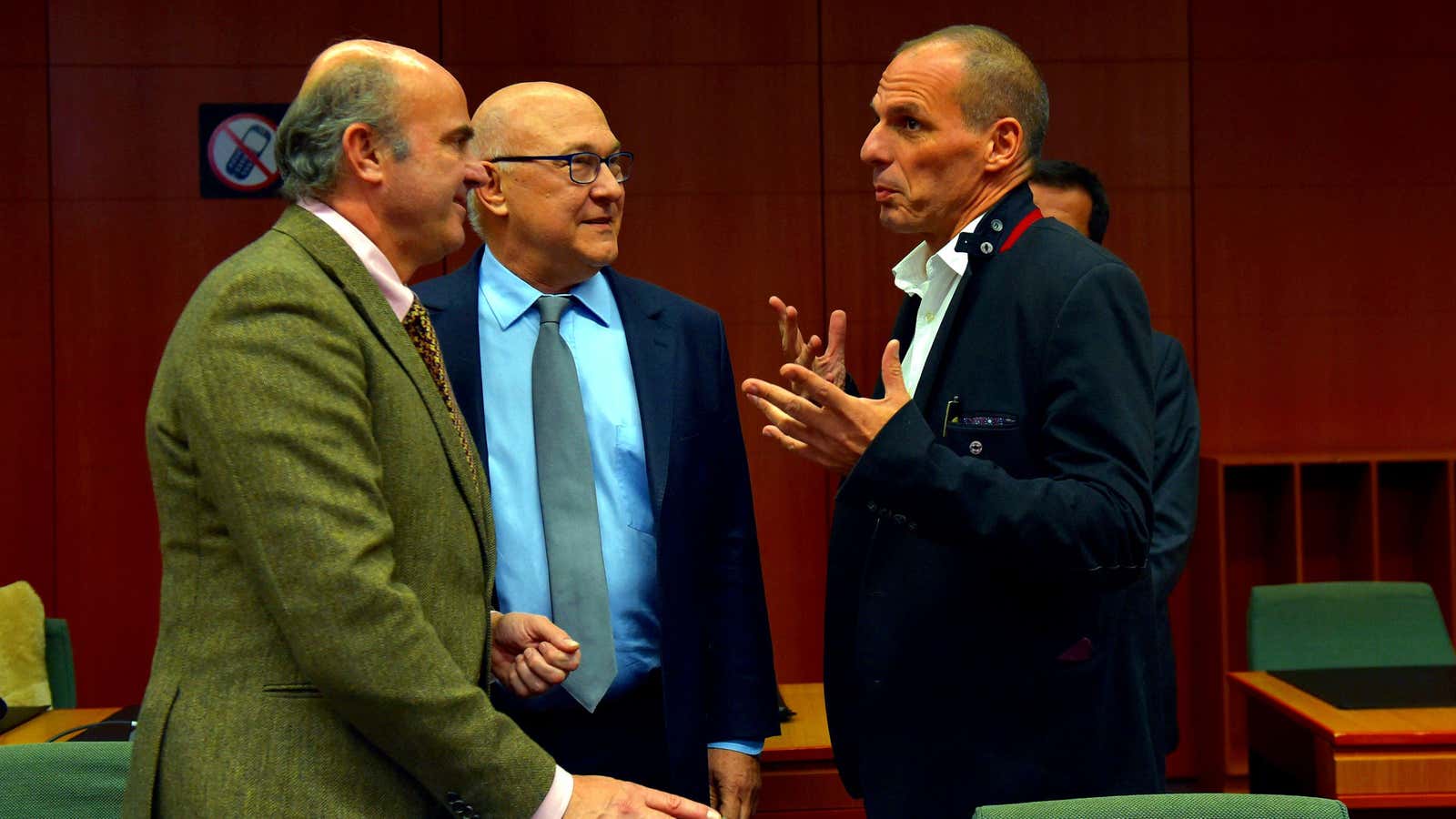After a week of contentious negotiations, Greece has reached a deal with its creditors in the rest of Europe to extend its rescue another four months.
The agreement averts a potential Greek default or exit from the European currency union—but, frustratingly, only if Greece and its creditors can agree on a reform agenda, with discussions that begin on Monday, February 23, and are expected to be completed in April.
On one hand, Syriza, the party behind the new left-wing Greek government, and Yanis Varoufakis, its contentious finance minister, have refused to commit to the policy agenda currently linked to their financial bailout—which they argue has failed. But no new funds will be disbursed until the European Central Bank and IMF approve a policy agenda the Greek government will deliver by Monday, which will limit Syriza’s ability to implement an agenda of rolling back austerity measures.
“There’s been a lot of discussion about words, the best thing to do is to use the formal, precise name that we have,” Eurogroup head Jeroen Dijsselbloem said, alluding to the week’s conflicts over “programs,” “arrangements,” and “commitment.”
The current program is expected to leave the Greek government facing a financial short-fall, and a likely third bailout this summer, adding credence to Greek demands for change.
But Greece’s creditors, led by Germany, resisted any extension to the financial assistance that would give Syriza government time to ease austerity policies before the rules for new bailout were agreed to. And the Greek financial system, undergoing large deposit outflows, faced a collapse that could only be averted by continued participation in the bailout program, or an uncertain and uncharacteristic last-minute rescue by the European Central Bank, in defiance of the Eurogroup consensus.
These financial realities resulted in today’s compromise: The creditors acknowledged the need for a review of the current bailout, and the possibility of another one, and will allow Greece to relax its commitment to an extraordinarily high fiscal surplus. But Greece had to concede that it will not take unilateral policy efforts that would affect its fiscal balance, which include many of Syriza’s campaign promises, including a hike in the minimum wage.
Until the new Greek government wins over the trust of its creditors in a final agreement on economic policy and financial aid, it will be hard to measure the outcome of these talks. Still, Varoufakis—no doubt with the promises his party made to its domestic constituents in mind—said the conclusion was an important political win for Greece, re-establishing its voice in setting the policies that will define its future.
Varoufakis even painted the conditions in the agreement in a positive light: ”Sometimes, like Ulysses, you need to tie yourself to a mast to get where you are going and avoid the sirens.”




